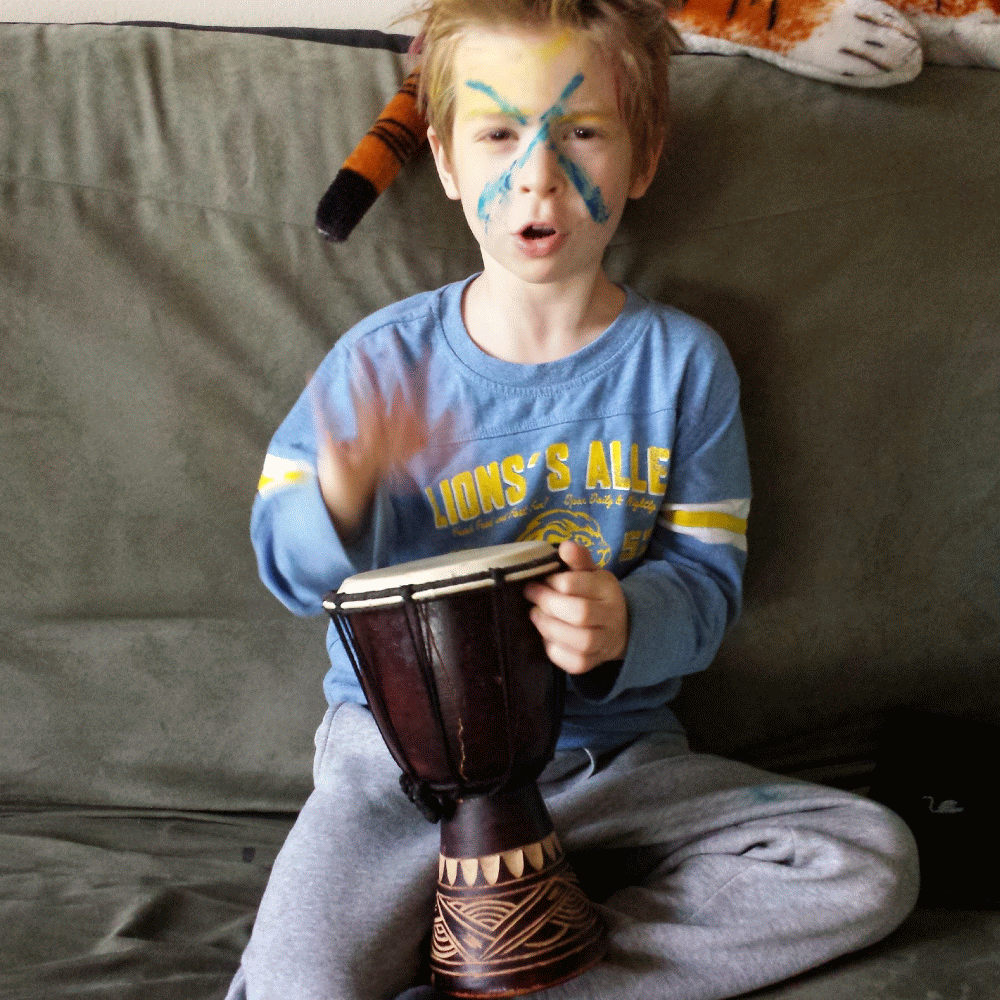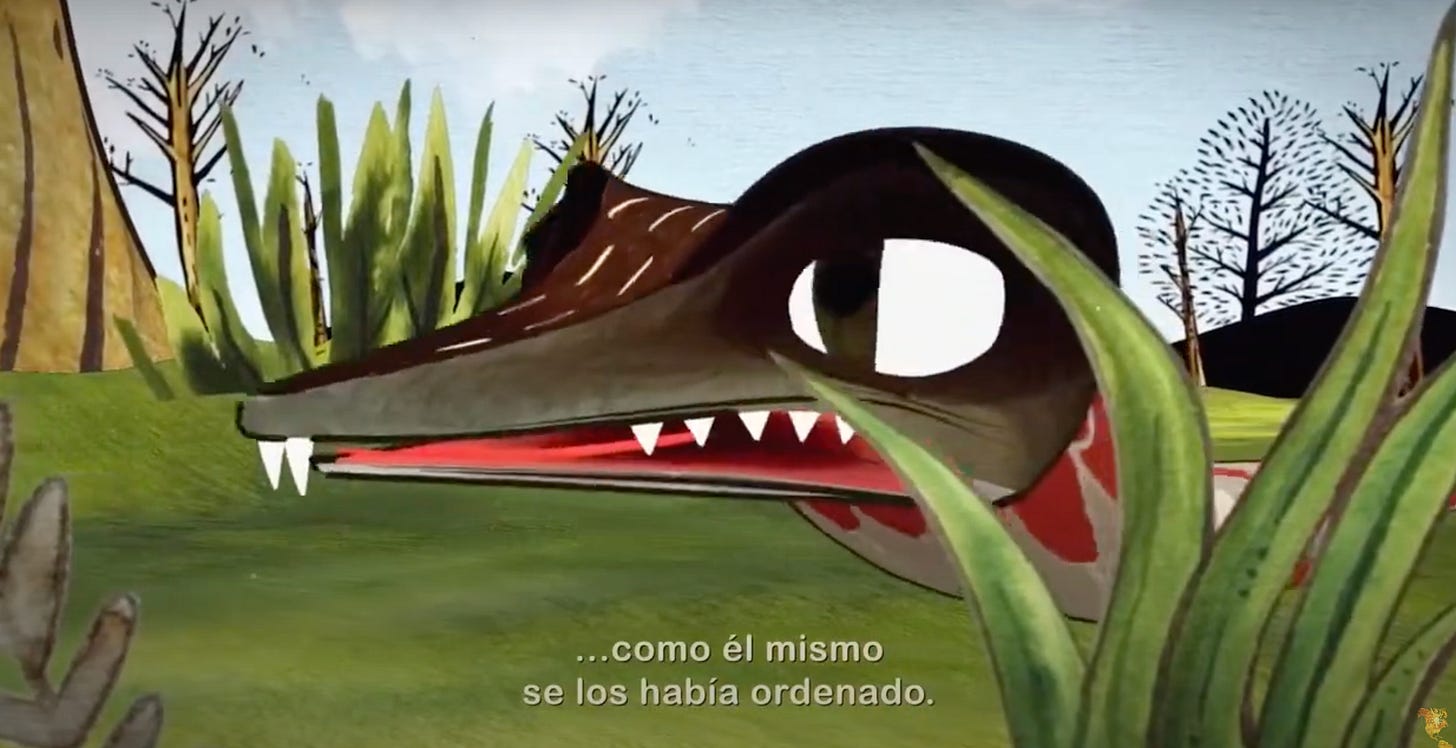Language learning is never going to be obsolete
no matter how advanced AI gets, because look at all the reasons we learn languages
Dear language-loving people,
Last week I asked you to share with me all the reasons you started learning a new language, to help me choose my 12th language this year.
I loved reading your stories and want to share some of them.
Gio started learning Italian to help him with his cooking (he writes Italian cookbooks) and to speak to his 100-year-old grandmother in her native tongue, and ended up strengthening the connection with his father and even at some point interpreting for his newly found Italian relatives.
whose native language is Persian, has started learning German. She says “My WHYs are that not only I wanna have something to do besides making art and doing house chores, but also I wanna apply for a university in Austria.” [Tanya’s note: Standard German is mutually comprehensible with Austrian German.] “Agatha Christie's mysteries were books I read as a preteen. Back then they had many phrases in French, never translated. (Maybe they still do? I don't know about later editions.) So I wanted to learn French.” [Tanya: I also remember reading Nabokov and Dostoyevsky and seeing all the French sentences. I didn’t know any French but I loved it that the writer assumed that I did. I miss those times when books didn’t hesitate to make us uncomfortable by including scary things like wolves devouring sick elderly ladies and sentences in a foreign language.] started learning Japanese because of her love of childhood origami, and came back to it after a 20-year break because she “missed doing things without a purpose.” She is also learning Korean because her niece wants her to learn it with her. is learning Japanese to be able to read books in this language, because she says only a tiny minority of books in Japanese get translated into English. is learning Lithuanian to do research and connect with the folklore from the land of her ancestors.Paula is learning Italian to reconnect with a friend she lost. She says: “Learning Italian, for me, brings my late friend Diana back to life. She died too soon, but before she did, she taught me everything there was to learn about Rome and the Italian way of life.”
Your stories made me think that people will keep learning languages regardless of how advanced translation technology gets. Because no matter what, AI can’t help you reconnect with your 100-year-old grandmother, or help you bond with your niece, or bring back to life a friend who died too soon.
Some ideas for me…
You also had some great ideas for my 12th language.
You suggested, among others, that I learn Norwegian, Navajo, Basque, Dutch, Hungarian, American Sign Language, Amharic, and Jamaican patois.
Well, now I feel like an overstimulated three-year-old in a toy store. I want all the toys.
I have actually been toying with the idea of learning Amharic since the day I passed by that Ethiopian spice shop in Jerusalem. It would be nice to learn some Amharic and go and chat with the owner of that shop and buy injera. I like the idea of learning languages and then just walking around and magically chatting with people.
Except, as we’ve already established, learning languages doesn’t automatically make one more chatty.
Besides, the only language that I really want to learn to speak well at this point is Arabic. And learning to speak two new languages at once is just not doable, not for me.
But I can dive into the grammar of a new language and still practice speaking Arabic.
And the winner is…
I probably knew the answer the minute I hit “publish” on last week’s post. Only I tried to ignore it because there is a big part of me that thinks I deserve an easy ride for my 12th language, and this one is not going to be an easy ride. But once you hear the voice of fate, you can’t un-hear it.
I’m going to learn…
I’m going to learn Yaqui.
I have to learn Yaqui because I owe it to Yaqui. If it wasn’t for Yaqui and Don Juan (and Carlos Castaneda and my brother who had his books lying around), I would have never gone to do a PhD in linguistics to specialize in a completely unrelated Native American language. Then I would have never been invited to that job interview at the University de Quebec à Montreal that forced me to learn French in a month and led me to discover that month is a perfect timeframe for me to dive into a language.
And if I’d never had a chance to fail that job interview (despite my stellar French) I would have never left academia to become a writer and I would have never started writing this newsletter.
See? Now, when I put it this way — obviously, I have to learn Yaqui.
Yaqui (also called Yo’eme, or Hiaki), is a language that belongs to the Uto-Aztecan language family. It is a family of languages indigenous to the Americas and spoken in Mexico and the western United States. Many languages of this group are already extinct, and most of the remaining ones are severely endangered.
Yaqui is spoken by around 16,000 speakers in Mexico and less than 100 speakers in Arizona.
There aren’t many resources on Yaqui. It’s not available on Google Translate, Duolingo, or any other language apps. There are some Yaqui lessons on YouTube and some word lists online. But while looking for resources on Yaqui, I stumbled on a familiar name. An Arizona linguist, Heidi Harley, has done a lot of work on Yaqui. Heidi Harley had probably already been working on Yaqui while I was still busy embarrassing myself in my native language but I forgot about it and remembered just this weekend.
We even communicated about Yaqui at some point because I have a handout from her talk on Yaqui from 2012 sitting in my mailbox.
It was like accidentally bumping into your kindergarten teacher while walking the streets drunk after a college party. Heidi Harley had never seen me learn one language a month like a crazy person instead of doing proper linguistic research like a respectable academic drunk before, so I felt a little self-conscious bumping into her, even though she has no idea I’d bumped into her in my email inbox.
Heidi Harley has co-authored a grammar of the Yaqui language which is available on Amazon but which I can’t order because Amazon deliveries cost a fortune and take forever to arrive in our troubled part of the world.
So unless I manage to get a hold of Heidi Harley and convince her to send me a PDF of that book, my only resources right now are her academic papers, the word lists online, and a 19-page-long “Preliminary Sketch of the Yaqui Language” written in 1923 by someone named J. Alden Mason, also available online.
I like learning from stories but haven’t found any written stories available online (there are Yaqui myths available in English), so my goal before the end of the month will be to learn whatever Yaqui I can from this video of the story “The Sorcerer Cricket.” It has subtitles in Spanish, so I already know what it is about, but obviously, I want to understand the Yaqui part.
If you’re a writer on Substack, consider recommending Friends with Words to your readers (go to Dashboard>Settings>Publication details>Recommend other publications on Substack) so they too can tell me their wonderful language stories and remind me how many languages there are out there that I’ll never have time to learn.






Yaqui! An excellent choice. Looking forward to reading about your experience. Empo allea.